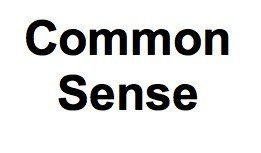A Review: Christopher Tilghman’s "On the Tobacco Coast"

On the Tobacco Coast (2024), Christopher Tilghman’s latest novel, is the last of four that trace the history of the Mason family and their house on Maryland’s Eastern Shore, Mason’s Retreat. Readers familiar with this series will find plenty of familiar personalities and conflicts.
About a dozen family members, ranging from toddler to nonagenarian, gather annually for a celebration, including a banquet, and on July 4, 2019, the Mason family is observing the estate’s 350th anniversary. What follows is a communal soul searching about family history, race and privilege, and the effort to find peace with the past.
The characters’ conversations and thoughts recall people from the past, and these remembrances make up much of the novel. Actions and events offer the characters their opportunities to tell of characters and events in the past.
Perhaps grimly, perhaps too self-referentially, Kate Mason, the family matriarch, imagines saying aloud later at dinner: “It is time to remember those whose lives were destroyed in order to make this moment possible.” This statement may be a clue to an understanding of Tilghman’s book.
Eleanor, the middle child of Kate and Harry Mason, is a fiction-writing grad student at Columbia whose current project is a historical novel about the foundation of the Mason dynasty. Through her main character, Mary Foxley, Eleanor examines her family’s harsh, sixteenth-century history in establishing their early success.
Foxley wonders about the legitimacy of the colonial enterprise’s displacement of the native people and abuse of the indentured. The natives’ lives and culture were destroyed to allow the survival of the English colony. Not to speak of the harm done to the later-arrived enslaved Africans.
In the past, as the banquet has begun, Harry (the patriarch) has offered a “thought about the privilege of being a family in this unique place,” but this time he gives way to Margaret, a neighbor and friend of the family. Margaret stands and offers: “I would like to say that we all gratefully acknowledge the diverse and vibrant Native American communities who make their home here today,” provoking some hostility and a reparations discussion.
French cousin Julien and his daughter Celeste are attending the celebration. They are descendants of two Americans born at the Retreat, Thomas Mason (White) and Beal Terrill (Black), childhood sweethearts who married and fled to France. The vineyard they started continues today under the ownership of Julien and Celeste; that story is told in Tilghman’s novel Thomas and Beal in the Midi (2019).
Julien and Celeste are given a tour of the remains of their American ancestors’ village, Tuckertown. They see both White and Black cemeteries, including the headstones of Beal’s parents and brother. Having travelled 3,000 miles, they symbolically and emotionally reunite with their American ancestors.
William Faulkner famously wrote, “The past is never dead. It’s not even past.” Few historians would argue that statement has no truth. Many clergy members argue that the past sin of Adam and Eve plagues their descendants today. In classical traditional tragedy, heroes commit errors that bring them down. The Mason establishment has no innocent past. In Tilghman’s four Eastern Shore novels, plenty of harm has been done by past Masons, not the least of which is a pre-Civil War sale of Retreat slaves that breaks up families. That pain and harm lasts long after.
Tilghman shows us that the 2019 Mason family members eventually find themselves, if not blessed, then at least free enough from curse to live decent, productive, and even somewhat creative lives. This writer, having reviewed the three previous books, appreciates the development and extension of them in the fourth. A new reader of the series, however, is far better off to read one of the earlier novels, in particular Thomas and Beal in the Midi. In that third book, the interracial marriage of Thomas and Beal Mason, their adventure in viniculture, and Beal’s life of social service in their rural community, readers will find rich reward.
Jim Block taught English at Northfield Mount Hermon, a boarding school in Western Mass. He coached cross-country and advised the newspaper and the debate society there. He taught at Marlborough College in England and Robert College in Istanbul. He and his wife retired to Chestertown, Md., in 2014.
Common Sense for the Eastern Shore







